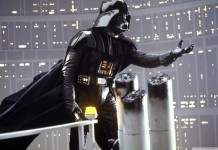1 Countable Nouns
As you can probably guess from the title, countable nouns are the nouns we can count. An example might be a table – because it is a particular item, it is easy to count the number of tables:
- A table → Two tables → Three tables
As we see in the example, we can form the plural for these nouns. Since we have several ways to make a plural in English, let’s look at it together.
Regular nouns
Most often we come across nouns where we form the plural by adding the ending -s/-es:
- A boy → Two boys
- A book → Two books
Some words in this category may change the letter in the plural:
- A knife → Two knives
- A leaf → Two leaves
- Spy → Two spies
Irregular nouns
For some nouns, the plural is formed irregularly. Because you can’t simply add the ending -s/-es here, we have no choice but to learn the plural:
- A woman → 2 women
- A man → 2 men
- A child → 2 children
- A foot → 2 feet
- A goose → 2 geese
- A tooth → 2 teeth
- A mouse → 2 mice
The zero plural
In English, there are nouns that can be counted, but the plural remains in the same form as a singular:
• A sheep → Two sheep
A sheep was running down the hill.
Two sheep were running down the hill.
• A deer →Two deer
A deer is sitting under a tree.
There are two deer sitting under a tree.
Oddities of some nouns
Nouns with a verb in the plural form only
We include in this group such words where even though we are talking about one thing, we need to use the plural form, e.g.:
•Clothes:
My jeans are blue.
My shorts are red.
•Tools:
The scissors are new.
My tongs are broken.
When we want to say that we have more items in mind, each of these nouns has its auxiliary word. Often it is a pair:
•There are two pairs of jeans.
•There are three pairs of scissors on the table.
Nouns with a verb in the singular only
Another oddity is that the verb is used in the singular, even though these nouns seem plural at first glance. Although ending with -s/-es, they are not in the plural:
•Some geographical names:
Athens is my favourite place to go.
Brussels is a really beautiful city.
•Names of games:
Draughts is a boring game for me.
Darts is the only game we have at home.
2 Uncountable Nouns
In English we also have nouns that we call uncountable nouns because we can’t count them. Examples include abstract words (e.g. love, hate, hope) and substance nouns (e.g. water, snow, steel) plus a lot of vocabulary, which may be countable in other languages, but not in English (e.g. bread, coffee, beer, news, information).
We can’t put an article before an uncountable noun. If we want to express uncertainty (e.g. some hope, some water), we can use the word SOME in positive sentences and the word ANY in questions and in negative sentences:
•Is there any hope?
You can’t say: Is there a hope?
•There is some water on the floor.
You can’t say: There is a water on the floor.
MANY/MUCH, A FEW/A LITTLE
If we want to express quantity for countable nouns, we add these words to them:
MANY and A FEW. For uncountable nouns we need another pair of words – MUCH and A LITTLE:
| Countable nouns | Uncountable nouns |
|---|---|
| I haven’t got many books. | I haven’t got much money. |
| She has got just a few friends. | She has a little patience. |
How to count the uncountable nouns?
In order to count the uncountable nouns, we need to add a countable unit, which we can use in the plural number without any problem. Let’s look at some examples:
• A LOAF of bread → Two loaves of bread
• A SLICE of cheese → Twenty slices of cheese
• A PIECE of information → Four pieces of information
• A BOTTLE of beer → Ten bottles of beer
• A GLASS of water → Five glasses of water
• A CUP of tea → Three cups of tea
Countable and uncountable nouns
Finally, we look at vocabulary that has the same form, but a different meaning depending on the countability aspect:
| Countable | Uncountable |
|---|---|
| A hair | Hair |
| A room | Room |
| A paper | Paper |
| An experience | Experience |
| A chocolate | Chocolate |









